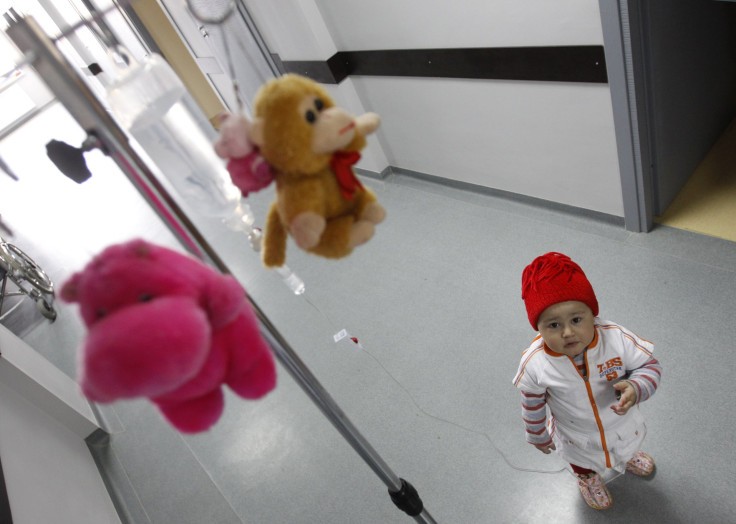A Cure For Cancer? Childhood Leukemia Genetic Causes To Be Tested In Zebrafish

Small and relatively see-through zebrafish may help researchers unlock a mystery in the fight against cancer that could lead to breakthroughs in early detection of childhood leukemia. A new research project at Wayne State University in Detroit will use thousands of the fish to try and identify genetic and environmental factors that may lead to the cancer.
The research is funded by Kids Without Cancer, a group of parents whose children have been treated for cancer at the Children’s Hospital of Michigan, according to media reports Tuesday. The non-profit has committed $356,000 to the cause, a figure that can support 10 years of research starting in 2017. That's when an aquatic housing system was scheduled to be installed at the university’s Integrative Biosciences Center.
“We had so much success with our original support that we saw the potential of additional scientific breakthroughs if we could ramp the research up,” Chris Vandenberg, the executive director of Kids Without Cancer, told the Detroit Free Press.
Researchers were working to find pesticides that may trigger a specific gene that causes leukemia. That previous research bred the zebrafish to have human leukemia genes. The next stages of testing will seek to determine what causes some children with the gene to develop leukemia while others live relatively healthy, cancer-free lives. Researchers will quickly be able to see if the fish develop leukemia because of changes in blood and skin colors.
The new efforts came after the White House introduced the so-called “Cancer Moonshot” that hopes to implement an effort to end cancer. That effort has been led by Vice President Joe Biden, whose son died of brain cancer in 2015 after a silent battle with the disease.
The quest received funding this month when President Barack Obama signed the 21st Century Cures Act with bipartisan support to provide $6.3 billion to improve electronic health records, precision medicine, mental health care and interoperability between researchers and care givers.
© Copyright IBTimes 2024. All rights reserved.






















